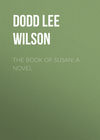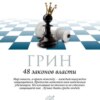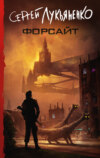Читать книгу: «The Book of Susan: A Novel», страница 10
XIII
The morning after Jimmy had dined with us, Susan, at my request, brought Miss Goucher to my study, and we had a good long talk together. And first of all the problem of Gertrude loomed before us, starting up ghostlike at a chance remark, and then barring all progress with more practical considerations, till laid. Neither Susan's telegram nor her private interview with Gertrude had been discussed between us; I had nervously shied off from both matters in my dread of seeming to question Susan's motives. But now Susan herself, to put it crudely, insisted on a show-down.
"The air needed clearing, Ambo, and I sent the telegram hoping to clear it by raising a storm. But, as Sister reminded me at breakfast, storms don't always clear the air – even good hard ones; they sometimes leave it heavier than ever. I'm afraid that's what my storm has done. Has it, Ambo? What happened when Mrs. Hunt came to see you here? But perhaps I ought to tell you first what happened between us?"
"No," I smiled; "Gertrude made that fairly plain, for once. And your storm did sweep off the worst of the fog! You see, Gertrude has, intensely, the virtues of her defects – a fastidious sense of honor among them. Once she felt her suspicions unjust, she was bound to acknowledge it. I can't say you won a friend, but you did – by some miracle – placate a dangerous foe."
"Is she coming back to you, Ambo?"
"No. She suggests divorce. But that of course is impossible!"
"Why?"
"Is it kind to ask?" said Miss Goucher. "And – forgive me, dear – after your decision, is it necessary for you to know?"
Susan reflected anxiously. "No," she finally responded, "it isn't kind; but it is necessary. I'll tell you why, Ambo. If you had been free, I think there's no doubt I should have married you. Oh, I know, dear, it sounds cold-blooded like that! But the point is, I shouldn't then have questioned things as I do now. My feeling for you – your need of me – they wouldn't have been put to the test. Now they have been – or rather, they're being tested, every minute of every hour. Suppose I should ask you now – meaning every word of it – to divorce Mrs. Hunt so you could marry me? At least you'd know then, wouldn't you, that simply being yours meant more to me than anything else in life? Or suppose I couldn't bring myself to ask it, but couldn't face life without you? Suppose I drowned myself – "
"Good God, dear!"
"I'm not going to, Ambo – and what's equally important, neither are you. Why, you don't even pause over Mrs. Hunt's suggestion! You don't even wait to ask my opinion! You say at once – it's impossible! That proves something, doesn't it – about you and me? It either proves we're not half so much in love as we think we are, or else that love isn't for either of us the only good thing in life – the whole show." She paused, but added: "Why can't you consider divorcing Mrs. Hunt, Ambo? After all, she isn't honestly your wife and doesn't want to be; it would only be common fairness to yourself."
Miss Goucher stirred uneasily in her chair. I stirred uneasily in mine.
"There are so many reasons," I fumbled. "I suppose at bottom it comes to this – a queer feeling of responsibility, of guilt even.."
"Nonsense!" cried Susan. "You never could have satisfied her, Ambo. You weren't born to be human, but somehow, in spite of everything, you just are! It's your worst fault in Mrs. Hunt's eyes. Mrs. Hunt shouldn't have married a man; she should have married a social tradition; an abstract idea."
"How could she?" asked Miss Goucher.
"Easily," said Susan; "she's one herself, so there must be others. It's hard to believe, but apparently abstractions like that do get themselves incarnated now and then. I never met one before – in the flesh. It gave me a creepy feeling – like shaking hands with the fourth dimension or asking the Holy Roman Empire to dinner. But I don't pretend to make her out, Ambo. Why did she leave you? It seems the very thing an incarnate social tradition could never have brought herself to do!"
Before I could check myself I reproved her. "You're not often merely cruel, Susan!" Then, hoping to soften it, I hurried on: "You see, dear, Gertrude isn't greatly to blame. Suppose you had been born and brought up like her, to believe beauty and brains and a certain gracious way of life a family privilege, a class distinction. Don't you see how your inbred worship of class and family would become in the end an intenser form of worshipping yourself? Gertrude was taught to live exclusively, from girlhood, in this disguised worship of her own perfections. We're all egotists of course; but most of us are the common or garden variety, and have an occasional suspicion that we're pretty selfish and intolerant and vain. Gertrude has never suspected it. How could she? A daughter of her house can do no wrong – and she is a daughter of her house." I sighed.
"Unluckily, my power of unreserved admiration has bounds, and my tongue and temper sometimes haven't. So our marriage dissolved in an acid bath compounded of honest irritations and dishonest apologies. I made the dishonest apologies. To do Gertrude justice, she never apologized. She knew the initial fault was mine. I shouldn't have joined a church whose creed I couldn't repeat without a sensation of moral nausea. That's just what I did when I married Gertrude. There was no deception on her side, either. I knew her gods, and I knew she assumed that mine were the same as hers, and that I was humbly entering the service of their dedicated priestess. Well, I apostatized – to her frozen amazement. Then a crisis came – insignificant enough… Gertrude refused to call with me on the bride of an old friend of mine, because she thought it a misalliance. He had no right, she held, under her jealous gods, to bring a former trained nurse home as his wife, and thrust her upon a society that would never otherwise have received her.
"I was furious, and blasphemed her gods. I insisted she should either accompany me, then and there, or I'd go myself and apologize for her – yes, these are the words I used – her 'congenital lunacy.' She left me like a statue walking, and went to her room."
"And you?" asked Susan.
"I made the call."
"Did you make the apology?"
"No; I couldn't."
"Naturally not," assented Miss Goucher.
"Oh, Ambo," protested Susan, "what a coward you are! Well, and then?"
"I returned to a wifeless house. From that hour until yesterday morning there have been no explanations between Gertrude and me. Gertrude is superb."
"I understand her less than ever," said Susan.
"I understand her quite well," said Miss Goucher. "But your long silence, Mr. Hunt – that I can't understand."
"I can," Susan exclaimed. "Ambo's very bones dislike her. So do mine. Do you remember how I used to shock you, Ambo, when I first came here – saying somebody or other was no damn good? Well, I can't help it; it's stronger than I am. Mrs. Hunt's no – "
"Oh, child!" struck in Miss Goucher. "How much you have still to learn!" Then she addressed me: "I've never seen a more distinguished person than Mrs. Hunt. I know it's odd, coming from me, but somehow I sympathize with her – greatly. I've always" – hesitated Miss Goucher – "been a proud sort of nobody myself."
Susan reached over and slipped her hand into Miss Goucher's. "Poor Sister! Just as we're going off together you begin to find out how horrid I can be. But I'll make a little true confession to both of you. What I've been saying about Mrs. Hunt isn't in the least what I think about her. The fact is, I'm jealous of her, in so many ways – except in the ordinary way! To make a clean breast of it, when I was with her she brought me to my knees in spite of myself. Oh, I acknowledge her power! It's uncanny. How did you ever find strength to resist it, Ambo? My outbreak was sheer Birch Street bravado – a cheap insult flung in the face of the unattainable! It was all my shortcomings throwing mud at all her disdain. Truly! Why, the least droop of her eyelids taught me that it takes more than quick wits and sensitive nerves and hard study to overcome a false start – or rather, no start at all!
"Birch Street isn't even a beginning, because, so far as Mrs. Hunt's concerned, Birch Street simply doesn't exist! And even Birch Street would have to admit that she gets away with it! I'd say so, too, if I didn't go a step farther and feel that it gets away with her. That's why ridicule can't touch her. You can't laugh at a devotee, a woman possessed, the instrument of a higher power! Mrs. Hunt's a living confession of faith in the absolute rightness of the right people, and a living rebuke to the incurable wrongness of the wrong! Oh, I knew at once what you meant, Ambo, when you called her a dedicated priestess! It's the way I shall always think of her – ritually clothed, and pouring out tea to her gods from sacred vessels of colonial silver! You can smile, Ambo, but I shall; and way down in my common little Birch Street heart, I believe I shall always secretly envy her… So there!"
For the first time in my remembrance of her, Miss Goucher laughed out loud. Her laugh – in effect, not in resonance – was like cockcrow. We all laughed together, and Gertrude vanished… But ten minutes later found us with knit brows again, locked in debate. Susan had at length seized courage to tell me that when she left my house she must, once and for all, go it completely alone. She could no longer accept my financial protection. She was to stand on her own feet, for better or worse, richer or poorer, in sickness or in health. This staggering proposal I simply could not listen to calmly, and would not yield to! It was too preposterously absurd.
Yet I made no headway with my objections, until I stumbled upon the one argument that served me and led to a final compromise, "Dear," I had protested, really and deeply hurt by Susan's stubborn stand for absolute independence, "can't you feel how cruelly unkind all this is to me?"
"Oh," she wailed, "unkind? Why did you say that! Surely, Ambo, you don't mean it! Unkind?"
I was quick to press my advantage. "When you ask me to give up even the mere material protection of my family? You are my family, Susan – all the family I shall ever have. I don't want to be maudlin about it. I don't wish to interfere with your freedom to develop your own life in your own way. But it's beyond my strength not to plead that all that's good in my life is bound up with yours. Please don't ask me to live in daily and hourly anxiety over your reasonable comfort and health. There's no common sense in it, Susan. It's fantastic! And it is unkind!"
Susan could not long resist this plea, for she felt its wretched sincerity, even if she knew – as she later told me – that I was making the most of it. It was Miss Goucher who suggested our compromise.
"Mr. Hunt," she said, "my own arrangement with Susan is this: We are to pool our resources, and I am to make a home for her, just as if I were her own mother. I've been able to save, during the past twenty-five years, about eight thousand dollars; it's well invested, I think, and brings me in almost five hundred a year. This is what we were to start with; and Susan feels certain she can earn at least two thousand dollars a year by her pen. I know nothing of the literary market, but I haven't counted on her being able to earn so much – for a year or so, at least. On the other hand, I feel certain Susan will finally make her way as a writer. So I'd counted on using part of my capital for a year or two if necessary. We plan to live very simply for the present, of course – but without hardship."
"Still – " I would have protested, if for once Miss Goucher had not waived all deference, sailing calmly on:
"As Susan has told you, she's convinced that she needs the assurance of power and self-respect to be gained by meeting life without fear or favor and making her own career in the face of whatever difficulties arise. There's a good deal to be said for that, Mr. Hunt – more than you could be expected to understand. Situated as you have always been, I mean. But naturally, as Susan's guardian, you can't be expected to stand aside if for any reason we fail in our attempt. I see that; and Susan sees it now, I'm sure. Yet I really feel I must urge you to let us try. And I promise faithfully to keep you informed as to just how we are getting on."
"Please, Ambo," Susan chimed in, "let us try. If things go badly I won't be unreasonable or stubborn – indeed I won't. Please trust me for that. I'll even go a step farther than Sister. I won't let her break into her savings – not one penny. If it ever comes to that, I'll come straight to you. And for the immediate present, I have over five hundred dollars in my bank account; and" – she smiled – "I'll try to feel it's honestly mine. You've spent heaven knows how much on me, Ambo; though it's the least of all you've done for me and been to me! But now, please let me see whether I could ever have made anything of myself if I hadn't been so shamelessly lucky – if life had treated me as it treats most people… Jimmy, for instance… He hasn't needed help, Ambo; and I simply must know whether he's a better man than I am, Gunga Dhin! Don't you see?"
Yes; I flatter myself that I did, more or less mistily, begin to see. Thus our morning conference drew to its dreary, amicable close.
But from the door Susan turned back to me with tragic eyes: "Ambo – I'm caring. It does – hurt." And since I could not very safely reply, she attempted a smile. "Ambo – what is to become of poor Tumps? Togo will have to come; I can't reduce him to atheism. But Tumps would die in New York; and he never has believed in God anyway! Can you make a martyr of yourself for his surly sake? Can you? Just to see, I mean, that he gets his milk every day and fish heads on Friday? Can you, dear?"
I nodded and turned away… The door closed so quietly that I first knew when the latch ticked once how fortunately I was alone.
XIV
Maltby Phar was responsible for Togo; he had given him – a little black fluff-ball with shoe-button eyes – to Susan, about six months after she first came to live with me. Togo is a Chow; and a Chow is biologically classified as a dog. But if a Chow is a dog, then a Russian sable muff is a dish rag. Your Chow – black, smoke blue, or red – is a creation apart. He is to dogdom what Hillhouse Avenue is to Birch Street – the wrong end, bien entendu. His blood is so blue that his tongue is purple; and, like Susan's conception of Gertrude, he is a living confession of faith in the rightness of the right people, a living rebuke to the wrongness of the wrong; the right people being, of course, that master god or mistress goddess whom he worships, with their immediate entourage. No others need apply for even cursory notice, much less respect.
I am told they eat Chows in China, their native land. If they do, it must be from the motive that drove Plutarch's Athenian to vote the banishment of Aristides – ennui, to wit, kindling to rage; he had wearied to madness of hearing him always named "the Just." Back, too, in America – for I write from France – there will one day be proletarian reprisals against the Chow; for in the art of cutting one dead your Chow is supreme. He goes by you casually, on tiptoe, with the glazed eye of indifference. He sees you and does not see you – and will not. You may cluck, you may whistle, you may call; interest will not excite him, nor flattery move him; he passes; he "goes his unremembering way." But let him beware! If Americans are slow to anger, they are terrible when roused. I have frequently explained this to Togo – more for Susan's sake than his own – and been yawned at for my pains.
Personally, I have no complaint to make. In Togo's eyes I am one of the right people. He has always treated me with a certain tact, though with a certain reserve. Only to Susan does he prostrate himself with an almost mystical ecstasy of devotion. Only for her does his feathered tail-arc quiver, do his ears lie back, his calm ebon lips part in an unmistakably adoring smile. But there is much else, I admit, to be said for him; he never barks his deep menacing bark without cause; and as a mere objet d'art, when well combed, he is superb. Ming porcelains are nothing to him; he is perhaps the greatest decorative achievement of the unapproachably decorative East..
But for Tumps, my peculiar legacy, I have nothing good to say and no apologies to offer. Like Calverley's parrot, he still lives – "he will not die." Tumps is a tomcat. And not only is he a tomcat, he is a hate-scarred noctivagant, owning but an ear and a half, and a poor third of tail. His design was botched at birth, and has since been degraded; his color is unpleasant; his expression is ferocious – and utterly sincere. He has no friends in the world but Susan and Sonia, and Sonia cannot safely keep him with her because of the children.
Out of the night he came, shortly after Togo's arrival; starved for once into submission and dragging himself across the garden terrace to Susan's feet. And she accepted this devil's gift, this household scourge. I never did, nor did Togo; but we were finally subdued by fear. Those baleful eyes cursing us from dim corners – Togo, Togo, shall we ever forget them! Separately or together, we have more than once failed to enter a dusky room, toward twilight, where those double phosphors burned from your couch corner or out from beneath my easy-chair.
But nothing would move Susan to give Tumps up so long as he cared to remain; and Tumps cared. Small wonder! Nursed back to health and rampageous vivacity, he soon mastered the neighborhood, peopled it with his ill-favored offspring, and wailed his obscene balladry to the moon. Hillhouse Avenue protested, en bloc. The Misses Carstairs, whose slumbers had more than once been postponed, and whose white Persian, Desdemona, had been debauched, threatened traps, poison and the law. Professor Emeritus Gillingwater attempted murder one night with a .22 rifle, but only succeeded in penetrating the glass roof of his neighbor's conservatory.
Susan was unmoved, defending her own; she would not listen to any plea, and she mocked at reprisals. Those were the early days of her coming, when I could not force myself to harsh measures; and happily Tumps, having lost some seven or eight lives, did with the years grow more sedate, though no more amiable. But the point is, he stayed – and, I repeat, lives to this hour on my distant, grudging bounty.
Such was the charge lightly laid upon me..
Oh, Susan – Susan! For once, resentment will out! May you suffer, shamed to contrition, as you read these lines! Tumps – and I say it now boldly – is "no damn good."
XV
I am clinging to this long chapter as if I were still clinging to Susan's hand on the wind-swept station platform, hoarding time by infinitesimally split seconds, dreading her inevitable escape. Phil – by request, I suspect – did not come down; and Susan forbade me to enter the train with her, having previously forbidden me to accompany her to town. Togo was forward, amid crude surroundings, riling the brakemen with his disgusted disdain. Miss Goucher had already said a decorous but sincerely felt good-by, and had taken her place inside.
"Let's not be silly, Ambo," Susan whispered. "After all, you'll be down soon – won't you? You're always running to New York."
Then, unexpectedly, she snatched her hand from mine, threw her arms tight round my neck, and for a reckless public moment sobbed and kissed me. With that she was gone… I turned, too, at once, meaning flight from the curious late-comers pressing toward the car steps. One of them distinctly addressed me.
"Good morning, Ambrose. Don't worry about your charming little ward. She'll be quite safe – away from you. I'll keep a friendly eye on her going down."
It was Lucette.
THE FOURTH CHAPTER
I
I HAD a long conference with Phil the day after Susan's departure, and we solemnly agreed that we must, within reasonable limits, give Susan a clear field; her desire to play a lone hand in the cut-throat poker game called life must be, so far as possible, respected. But we sneakingly evaded any definition of our terms. "Within reasonable limits;" "so far as possible" – the vagueness of these phrases will give you the measure of our secret duplicity.
Meanwhile we lived on from mail delivery to mail delivery, and Susan proved a faithful correspondent. There is little doubt, I think, that the length and frequency of her letters constituted a deliberate sacrifice of energy and time, laid – not reluctantly, but not always lightly – on the altar of affection. It was a genuine, yet must often have been an arduous piety. To write full life-giving letters late at night, after long hours of literary labor, is no trifling effort of good will – good will, in this instance, to two of the loneliest, forlornest of men. Putting aside the mere anodyne of work we had but one other effective consolation – Jimmy; our increasing interest and joy in Jimmy. But, for me at least, this was not an immediate consolation; my taste for Jimmy's prosaic companionship was very gradually acquired.
Our first word from Susan was a day letter, telephoned to me from the telegraph office, though I at once demanded the delivery of a verbatim copy by messenger. Here it is:
"At grand central safe so far new york lies roaring just beyond sister and togo tarry with the stuff near cab stand while I send. Love Mrs. Arthur snooped in vain now for it courage Susan whos afraid dont you be alonsen fan."
Phil, the scholar, interpreted the last two verbatim symbols: "Allons, enfants!"































